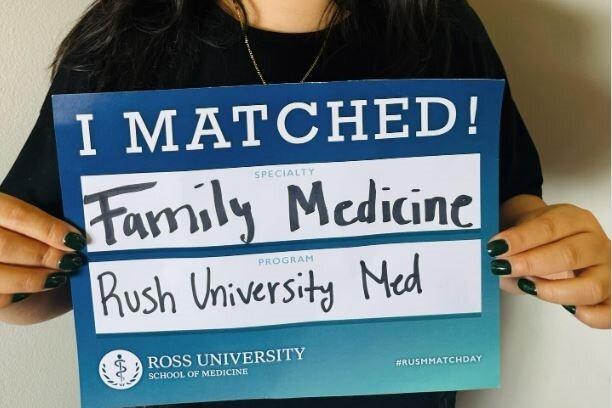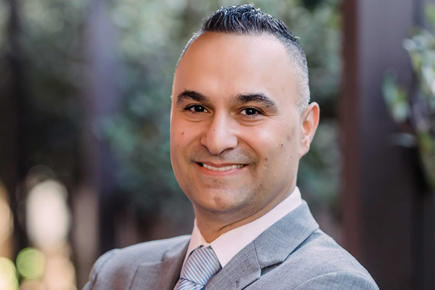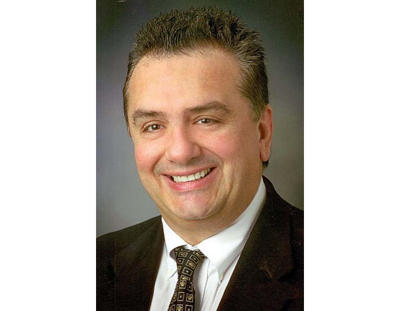Sometimes, your greatest obstacles can be in your own head.
Take Ross grad Dr. Kyle Evers. Throughout high school, he had a strong interest in the sciences and a natural desire to help people. Yet when thinking about his future career, medicine barely crossed his mind as a possibility.
Why? He didn’t fit his own notion of “the doctor type.”
“In my mind, doctors were people who never had to study—those kids who got straight A’s without even trying,” Dr. Evers explains. “That wasn’t me. So I didn’t really consider myself a future doctor.”
Today, Dr. Evers is a third-year resident physician in internal medicine at Memorial University Medical Center in Savannah, Georgia. It’s safe to say his views on who can be a doctor have expanded—along with his confidence in himself.
Discovering His Passion
When I ask Dr. Evers why he chose internal medicine, he says he loves the diversity of it—and begins ticking off all the different specialties he enjoys. Rheumatology. Nephrology. Gastroenterology. Cardiology. Endocrinology.
“My intern friends would joke that I wanted to specialize in everything, because when starting each new rotation, I would change my mind and decide that one was my favorite,” Dr. Evers says with a laugh. “I just wanted to do everything.”
It might seem hard to believe that someone with such an obvious affinity for medicine could have ever doubted his potential in the field. But Dr. Evers had discounted medicine since his teenage years, and it wouldn’t resurface until he was majoring in biology at LaGrange College. Recognizing his talent, a few of his professors encouraged him to reconsider the career he had long since dismissed.
“I kind of laughed it off at first, but then it became this recurring idea,” says Dr. Evers.
So he did an internship with a general surgeon in his college town. Then, he got a job as an orderly in the operating room, where he worked during his last year and a half at college. “That sealed it,” says Dr. Evers. “I knew I wanted to be a doctor.”
A Diverse Perspective
Dr. Evers chose Ross for a few reasons, including residency placement rates and overall reputation. In addition, he was intrigued by the option to choose either a single location for his clinical clerkships or experience multiple hospitals throughout the country.
“I love to travel and being able to experience new cultures, so being able to do that while getting a medical degree was a no-brainer,” says Dr. Evers.
Sure enough, during his clinical year, Dr. Evers took advantage of the option—getting a taste for medicine in Miami, New York, Cape Cod, Connecticut and Michigan.
His favorite? Miami. (“I love the culture and the bilingual nature of everything—and there’s amazing food.”)
“You can learn medicine anywhere if you’re willing to study. The real difference is the environment and the experiences,” says Dr. Evers. “That was the key benefit for me. If you work at only one place, you may think every hospital operates like that, but if you move around, you quickly realize how different hospital systems are. And each system has its strengths.”
Making a Home
His rich background across many hospitals helps him appreciate his residency hospital, Memorial Health, that much more.
In particular, Dr. Evers was struck by the “family atmosphere” he sensed at Memorial. During his interview, he was impressed by the interaction between residents and attending physicians. Not only did they stay after meetings to chat, they clearly made an effort to get together outside of work as well.
“It was very comfortable, very warm,” he says. “It’s a very personal environment.”
That environment is good not only for having friends outside of work—it’s a key factor in helping the hospital run smoothly. Dr. Evers credits the friendly atmosphere with fostering open communication that’s led to great relationships across residency lines.
“Here, the staff is dedicated to patient care and diligent in their jobs,” says Dr. Evers. “It takes a lot of pressure off residents.”
And it’s clear that the feeling goes both ways.
“Dr. Evers is one of our most exceptional residents,” says Dr. Timothy Connelly, associate residency program director at Memorial Health. “I’m grateful for his awesome contributions to our program.”
The Real Doctor Type
Today, that high school student who thought he wasn’t the “doctor type” seems a world away from this dedicated physician who’s enamored with his work and singularly focused on patients.
Dr. Evers says he can’t imagine himself doing anything else.
“Even if I had a billion dollars and didn’t have to work, I’d still want to do this job. I can’t think of anything more perfect for me,” he says.
In fact, while some of his medical school classmates are earning their MBAs or have an eye towards management in the future, Dr. Evers couldn’t be happier exactly where he is.
“I don’t have administrative aspirations,” he says. “I just like taking care of people.”



